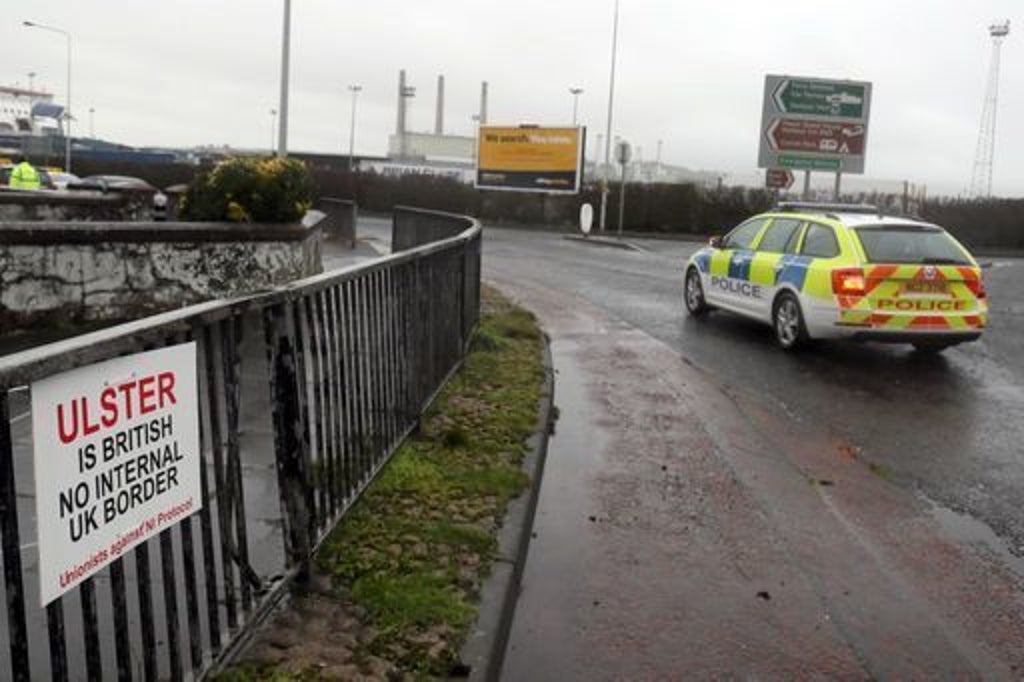
Northern Ireland’s post-Brexit trading arrangements — a set of rules referred to as the Northern Ireland protocol — are again in the headlines amid UK threats to unilaterally rip up parts of the deal.
It follows months of negotiations between London and Brussels aimed at reducing trade friction between Northern Ireland and Great Britain.
But Liz Truss, the foreign secretary, who is also responsible for the talks, said she will not “shy away” from taking action on the Protocol, warning some proposals put forward by the EU would “take us backwards”.
The Democratic Unionist Party (DUP), which came second in last week’s Assembly elections in NI, has also warned Boris Johnson it would not nominate a deputy first minister to form an executive until “decisive action” is taken on the Protocol.
But what is the Northern Ireland protocol all about?
The NI protocol was agreed as part of the Brexit deal — signed by Boris Johnson — and is designed to protect the Good Friday Agreement by avoiding a hard border on the island of Ireland.
To allow goods to move freely between NI and the Republic of Ireland and avoid that hard border, NI remained in the EU’s single market for goods.
But NI also stayed in GB’s market too because it is still part of the UK.
Irish Sea border
After Brexit, NI's border with the ROI also became the UK's new border with the EU.
And because the UK and the EU now follow different customs rules, there needed to be a border somewhere on the island of Ireland.
As a solution, the UK and EU government agreed to a deal that would see customs checks at NI's ports, creating a de facto border down the Irish Sea, which is now commonly referred to as the 'Irish Sea border'.
Why are the DUP and unionists not happy with the new arrangements?
There has been some disruption to trade because checks are required on some goods entering NI from GB and vice versa.
This is because the UK no longer follows EU customs rules, while NI continues to do so.
The most onerous checks are on animal and plant-based products because the UK and EU follow different standards on these items.
The full range of checks has not yet been implemented with a number of grace periods still running.
This disruption to trade has angered the unionist community. But perhaps more importantly, unionists believe the new arrangement has cut NI adrift from the rest of the UK.
Unionists, who define themselves as British, say the protocol poses an existential threat to NI's constitutional status within the UK.
What is Article 16?
Article 16 is a technical term given to a Brexit clause that allows the UK and the EU to suspend any part of the agreement that causes "economic, societal or environmental difficulties".
The DUP say the Irish Sea border ticks those boxes and is therefore calling on Mr Johnson to trigger the clause to remove elements of the protocol.
The prime minister has previously said he would consider triggering Article 16. But neither he nor the DUP has set out what would replace the protocol.
What has the EU said?
In a statement on Tuesday afternoon, European Commission vice president Maros Sefcovic said renegotiation of the protocol was “not an option”, and that unilateral action by the UK would make work on possible solutions “more difficult”.
“The EU has been open to joint work with the UK on implementing the protocol to bring long-term legal certainty and predictability to the people and businesses in Northern Ireland,” he said.
“The EU remains open to such discussions. Only joint solutions will work. Unilateral action by the UK would only make our work on possible solutions more difficult.
“The protocol, as a cornerstone of the Withdrawal Agreement, is an international agreement. Its renegotiation is not an option. The European Union is united in this position.”







